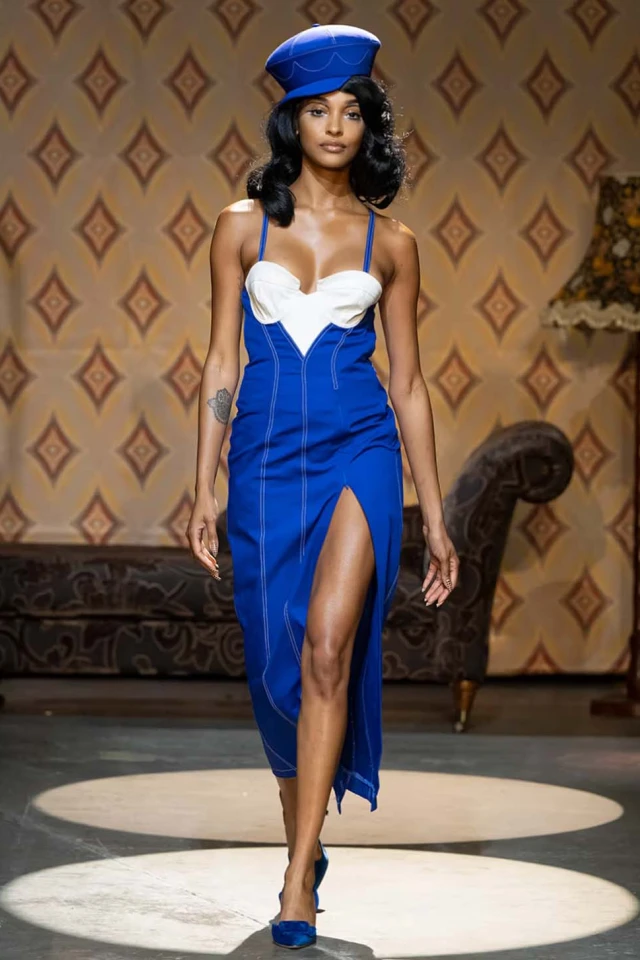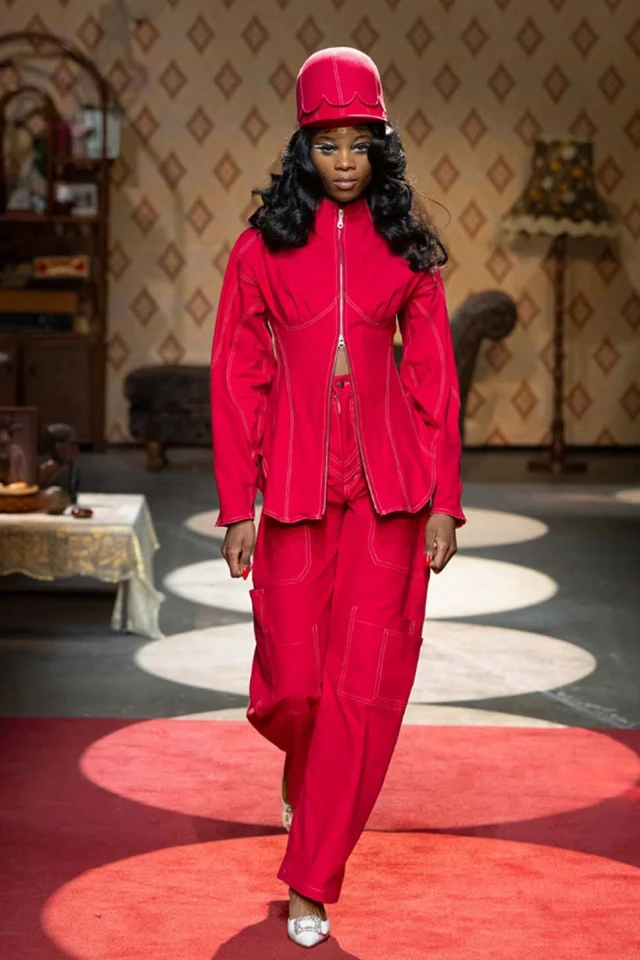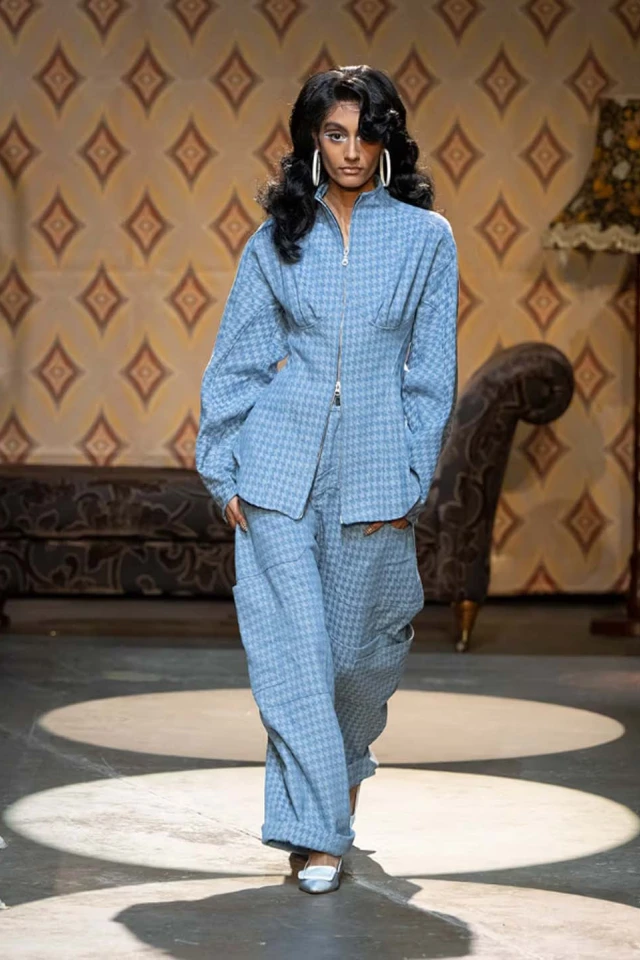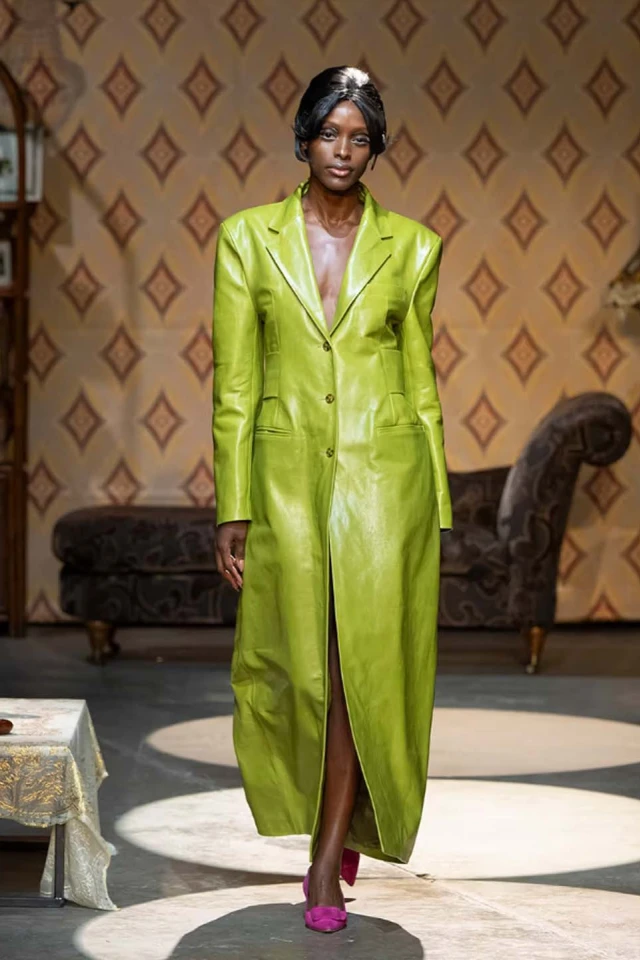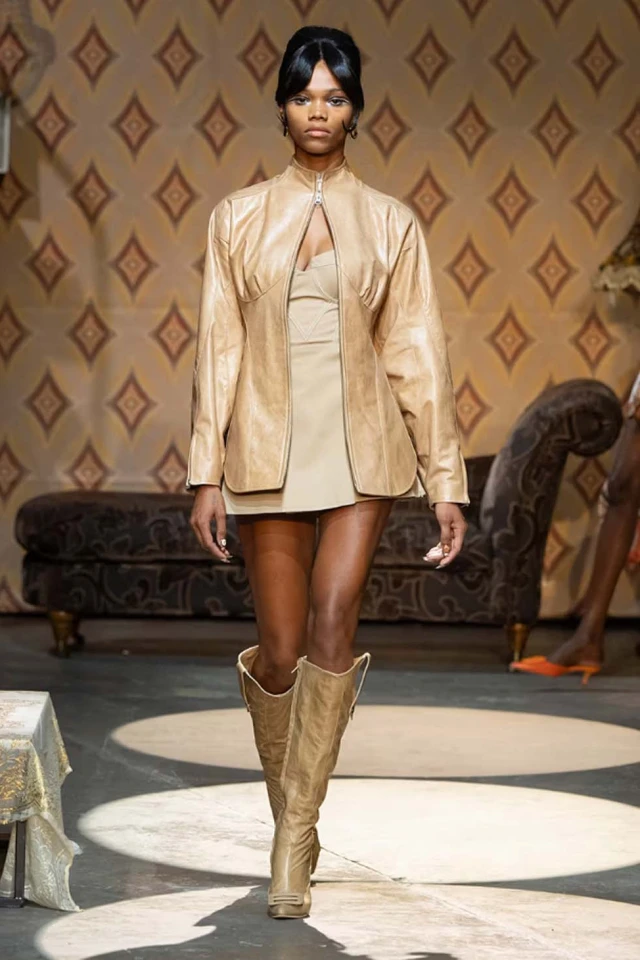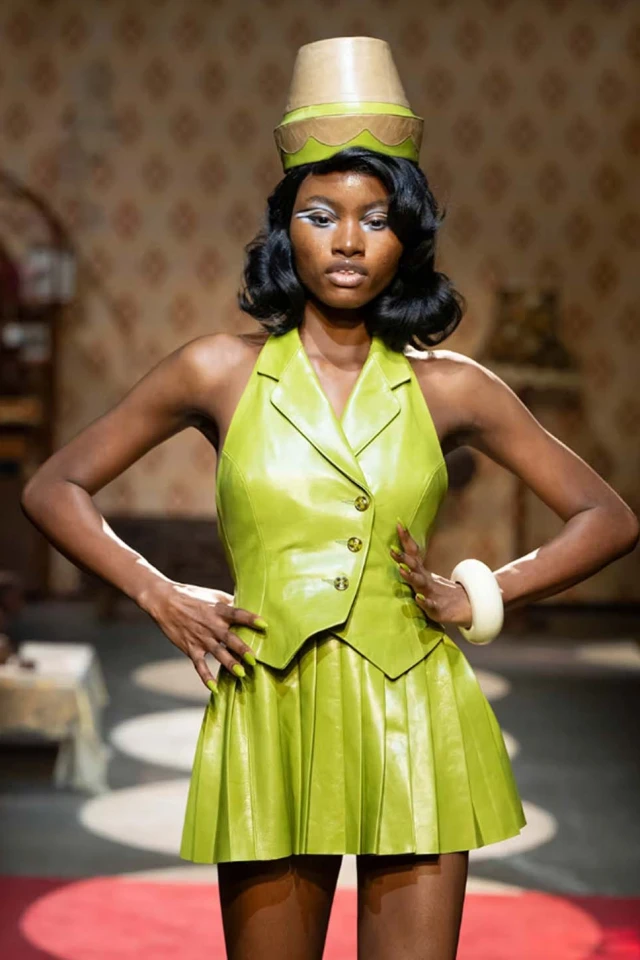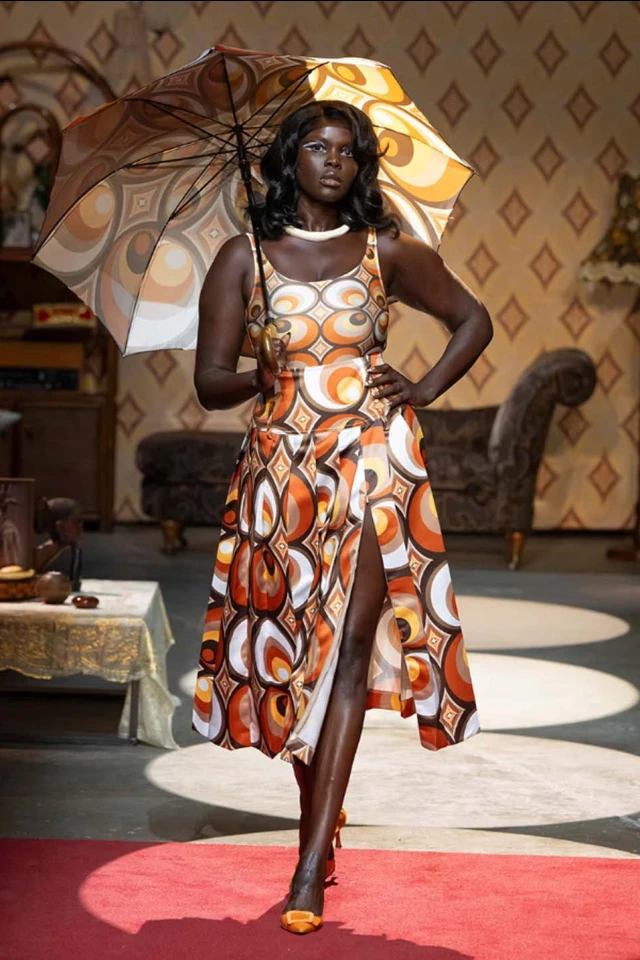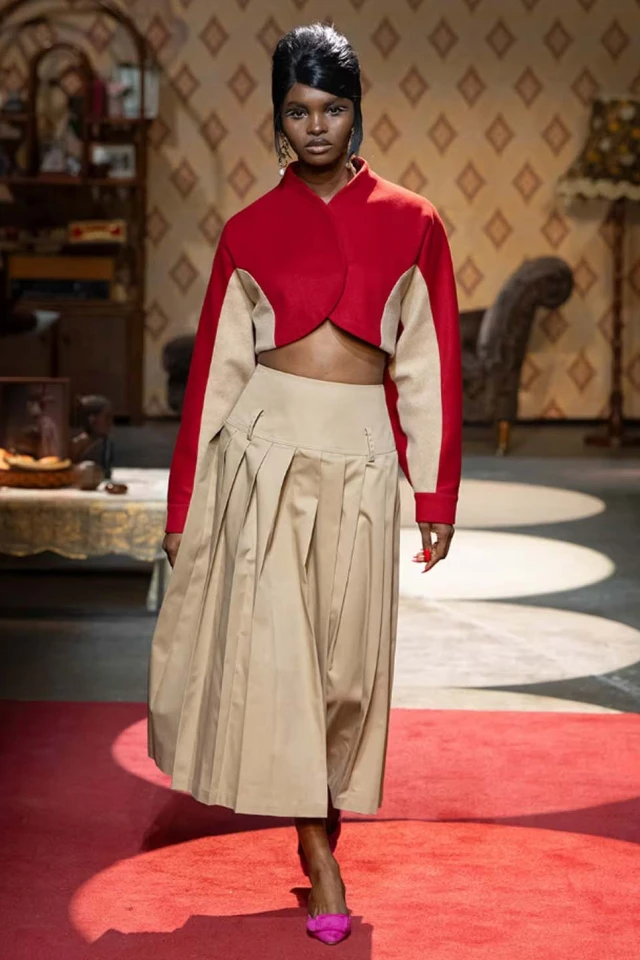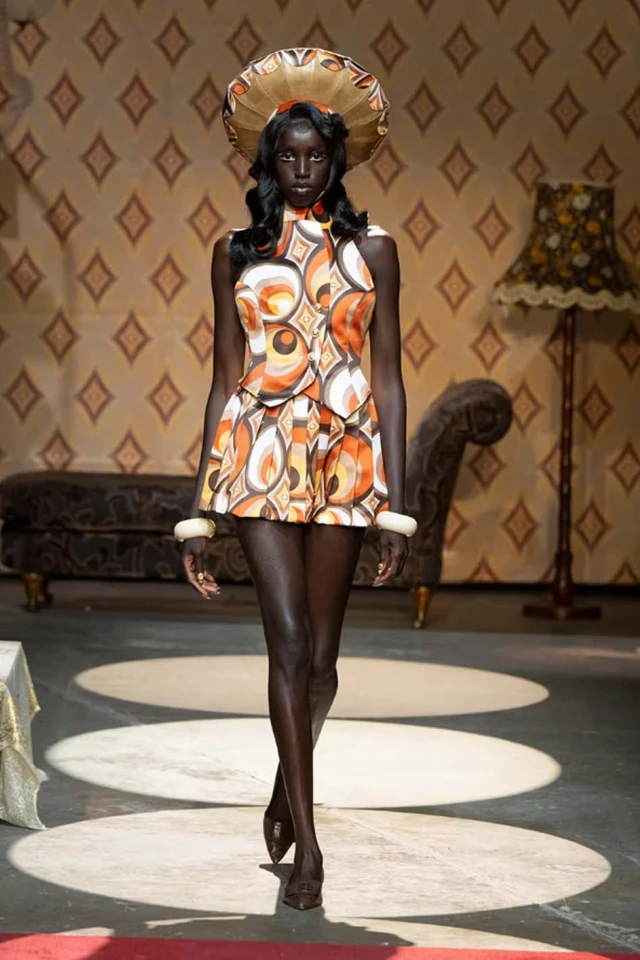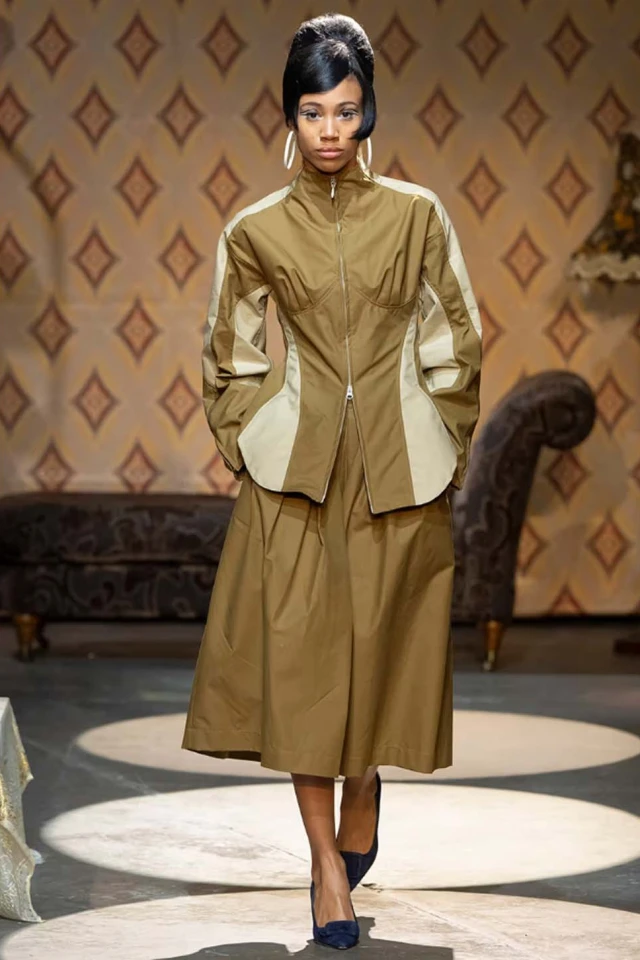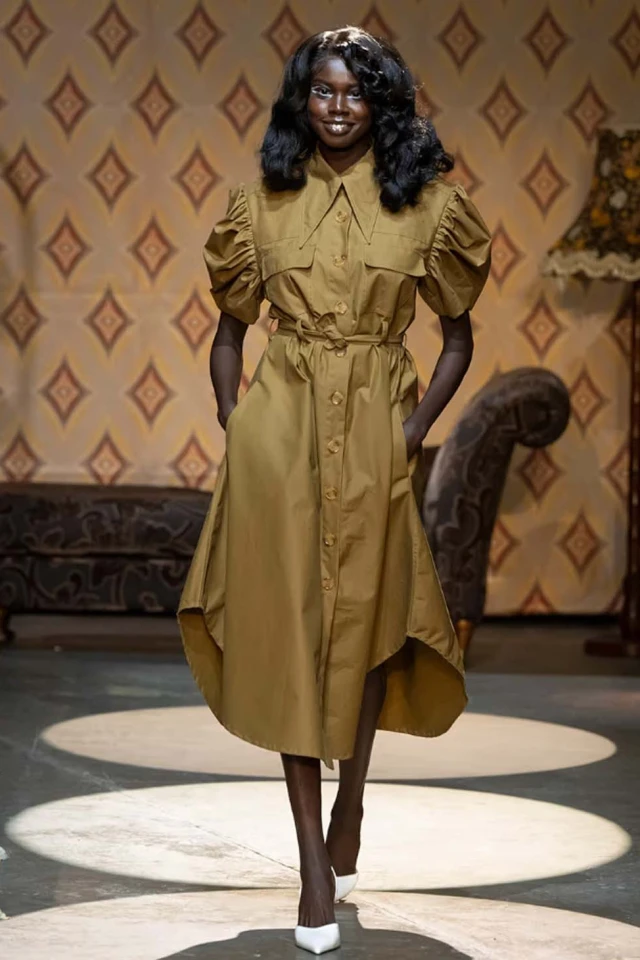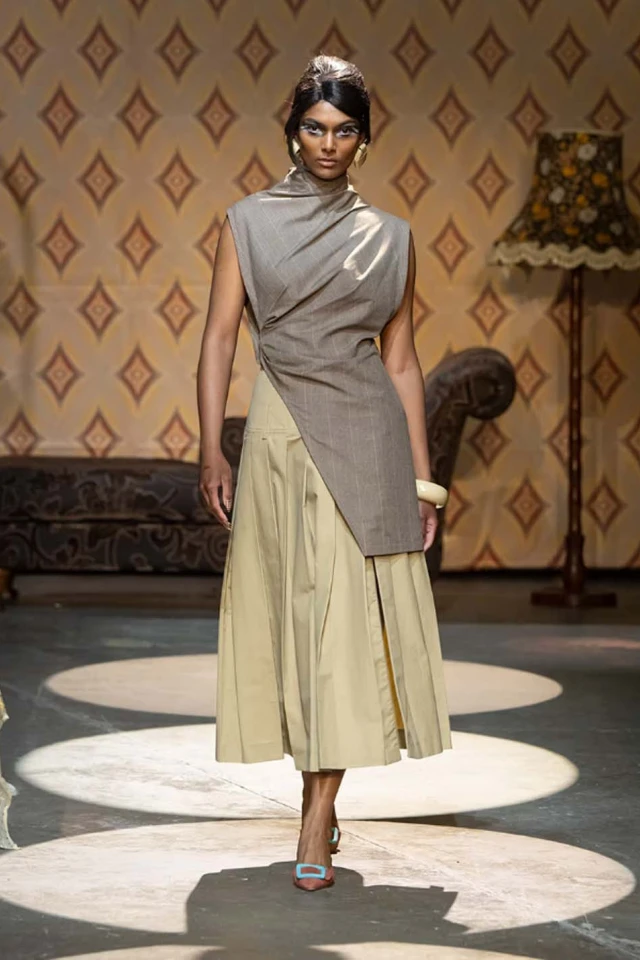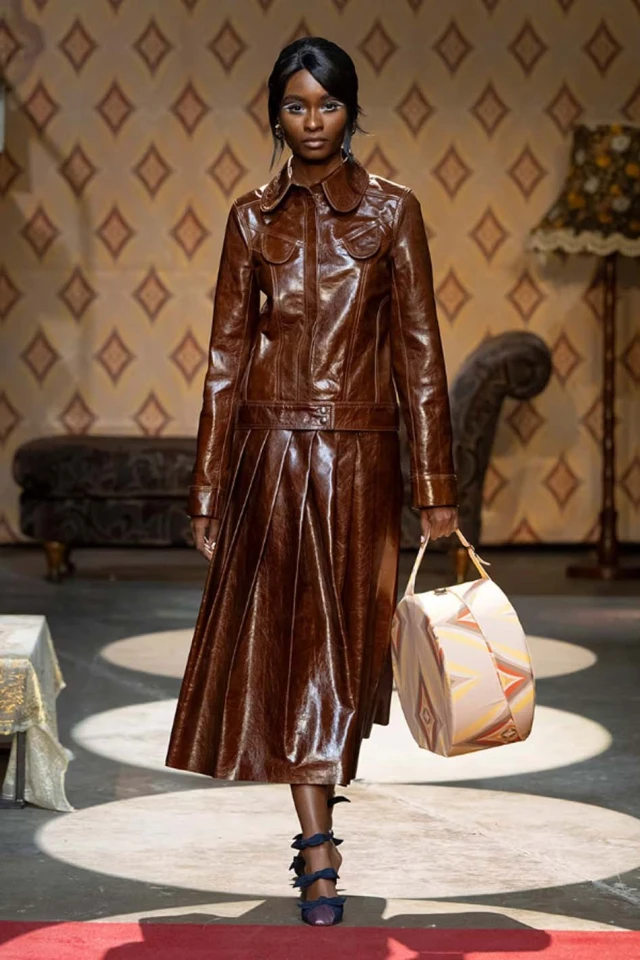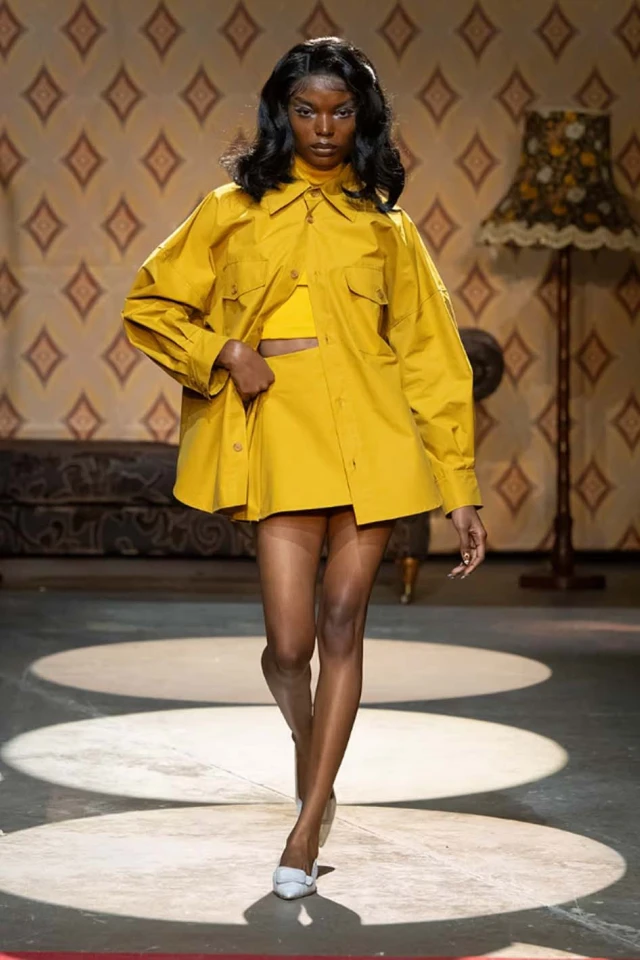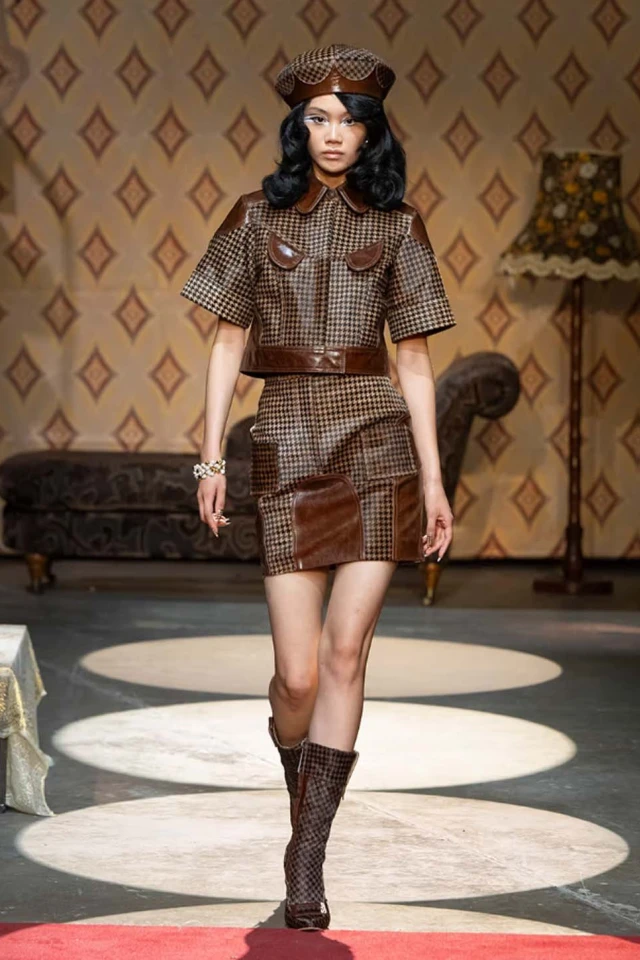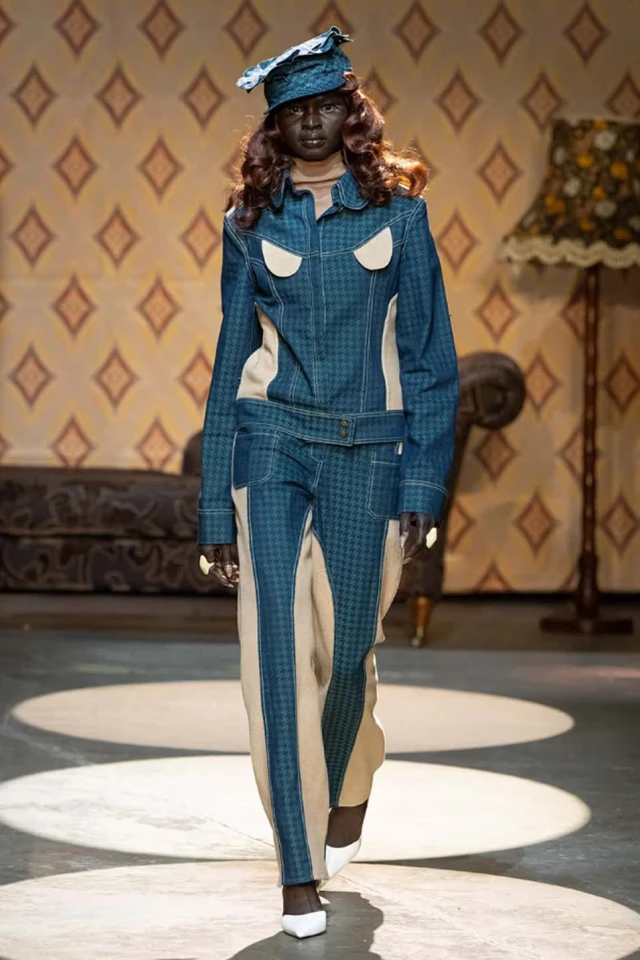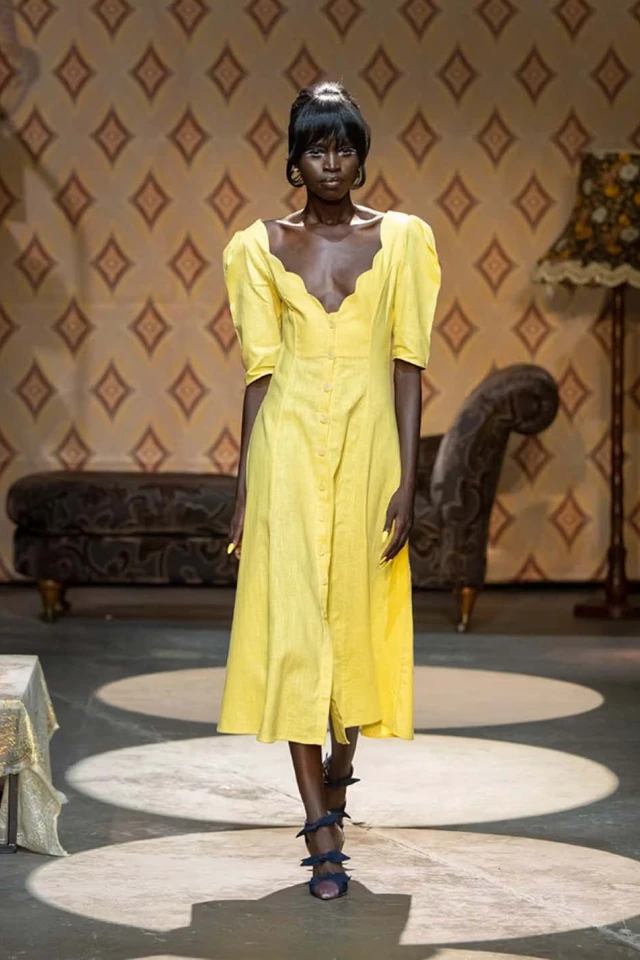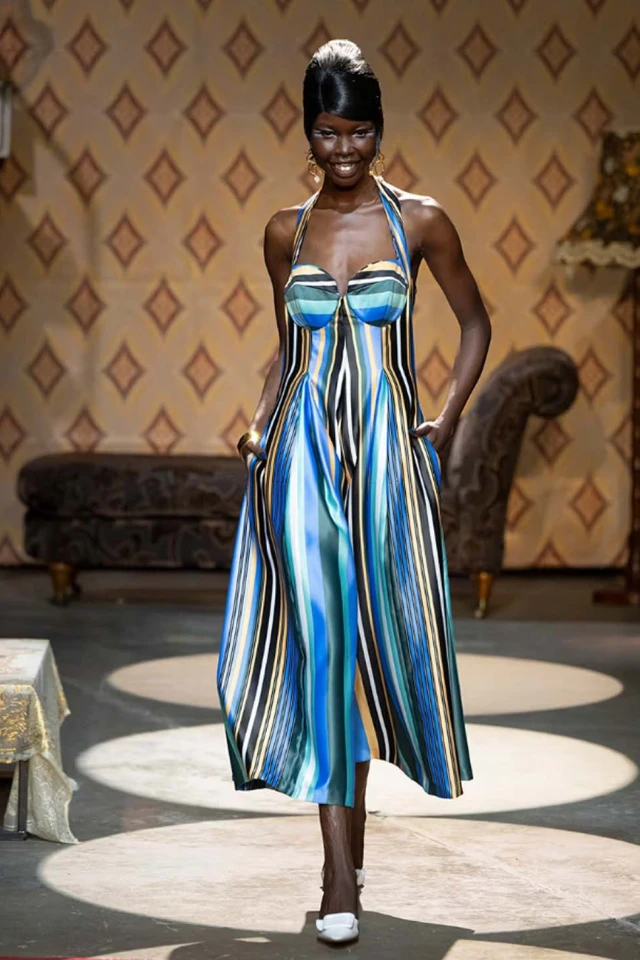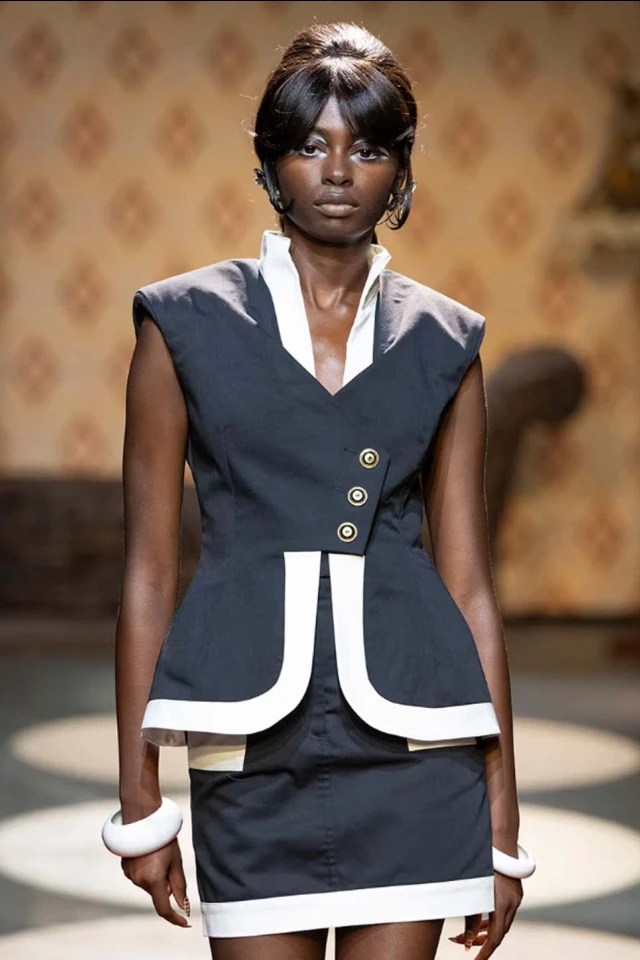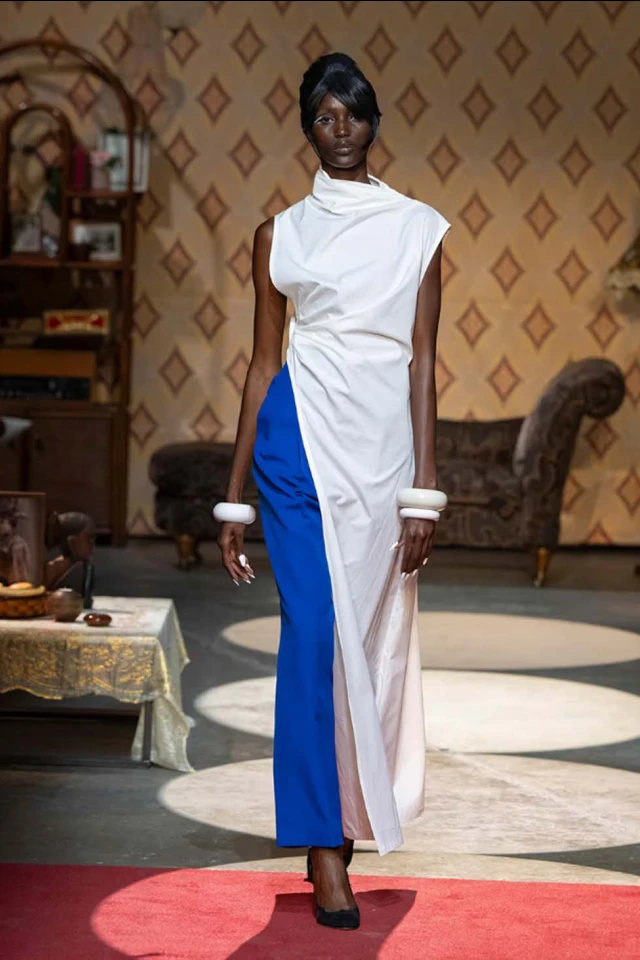As the sun set on one of the busiest days of London Fashion Week, stepping into Tolu Coker's runway show felt like returning to a cherished home. The venue, adorned with vibrant ’70s graphics and framed photographs of proud Black women, created a captivating atmosphere reminiscent of a nostalgic family gathering. Mid-century furniture lined the runway, with teak sofas, a lavish dinner table, and hand-carved busts transforming the space into a celebration of heritage and community. Coker’s intention was clear: to honor her mother, Olapeju Coker, and explore the significance of living rooms as cultural gathering spaces for immigrant communities.
In her collection, titled "Olapeju," Coker skillfully wove together personal history and broader narratives of immigration. Drawing inspiration from her childhood home in North Kensington, the pieces echoed the vibrant style of the late '60s and early '70s, marked by sharp tailoring and playful silhouettes. Leather Harringtons, oversized denim, and swinging halternecks evoked a sense of joyous nostalgia, while the craftsmanship reflected a commitment to sustainability. Coker's designs not only showcased her technical prowess but also celebrated the beauty and resilience of the communities that shaped her upbringing.
The show culminated in a spirited finale led by British supermodel Jourdan Dunn, where models danced down the runway, embodying Coker's vision of luxury as an accessible celebration of craft and culture. “Joy was also a means of resistance,” Coker explained, emphasizing her desire to reshape narratives around Black experiences. This was more than just a fashion show; it was a vibrant testament to community, heritage, and the uplifting power of storytelling through design. In a world often overshadowed by elitism, Coker’s collection reminded us that fashion can indeed be a joyful, inclusive celebration.
